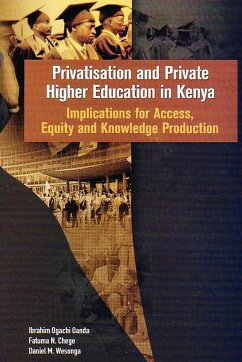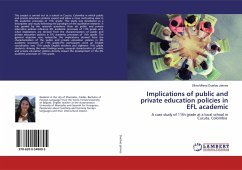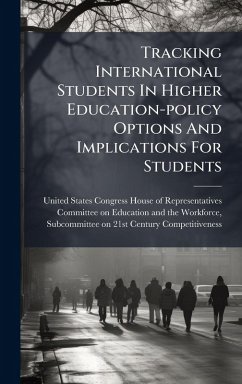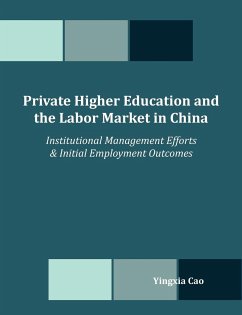
Privatisation and Private Higher Education in Kenya. Implications for Access, Equity and Knowledge Production
Versandkostenfrei!
Versandfertig in 1-2 Wochen
41,99 €
inkl. MwSt.

PAYBACK Punkte
21 °P sammeln!
Over the last decade, the privatisation of public universities and the growth in the number of accredited private universities have picked up steadily in Kenya. The growth in the private university sector has been more in the number of institutions than in the volume of students, while in the public universities, privatisation has resulted in increased number of private students, whose enrollment in some institutions and programmes surpass the number of students on government sponsorship. This book addresses the implications of this development in Kenya, with regard to the responsiveness of pr...
Over the last decade, the privatisation of public universities and the growth in the number of accredited private universities have picked up steadily in Kenya. The growth in the private university sector has been more in the number of institutions than in the volume of students, while in the public universities, privatisation has resulted in increased number of private students, whose enrollment in some institutions and programmes surpass the number of students on government sponsorship. This book addresses the implications of this development in Kenya, with regard to the responsiveness of private higher education to issues of broadening access, equity and the traditional research function of universities. Four tensions caused by the privatisation of universities in Kenya are raised in the book. First is the diminishing role of private higher education institutions as promoters of social equity, since access to the institutions and programmes is dependent of the ability to pay in a context where critical demand for university education comes from underprivileged groups. The second is the narrow definition of quality prevalent in private universities and programmes, against a context that demands broadened access and wider curriculum as a critical component of quality university education. Third is the dilemma of private universities focusing on low-captial intensive programmes when the development challenges of countries such as Kenya require investments in capital intensive science and technology oriented ones. The last tension discussed is the desire of universities in the developing world to proactively contribute to global knowledge economy when the imperatives of private university education restrict investments in basic research and knowledge production.












